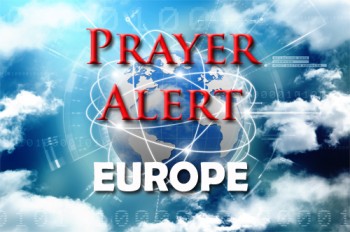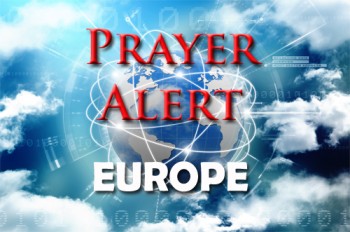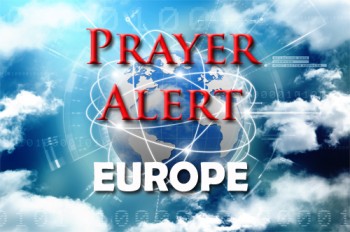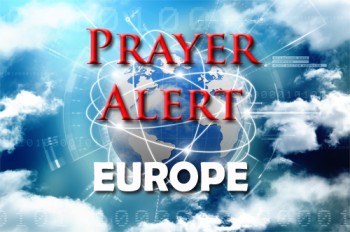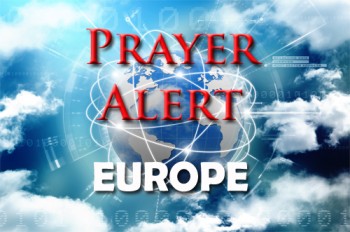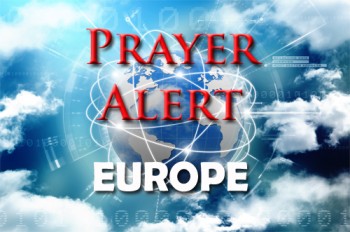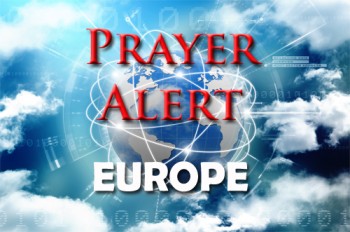Displaying items by tag: Europe
Finland: prosecution of Christian MP and bishop
Law professors have urged the US commission on international religious freedom to intervene for the Finnish Christian MP, Pavi Räsänen, who faces criminal charges for tweeting her views on marriage and sexuality. The bishop-elect of the Evangelical Lutheran Mission also faces prosecution for publishing a booklet in which Ms Räsänen made similar comments. The professors ask the commission to ‘press our government to use its legal powers and fulfil its duties under US law to aid victims of human rights violations such as Pavi Räsänen and Bishop Juhana.’ The prosecutor general’s pursuit of these charges sends an unmistakable message to all Finns: no one who holds to the traditional teachings of Judaism, Christianity, Islam, and other religions on questions of marriage and sexual morality will be safe from state harassment if they openly express their moral and religious convictions.
Europe: a church planted daily
M4 Ready is a ten-month online training course for people who have a potential to plant, lead and multiply churches in their nations. It is intended for younger leaders in local churches, denominations, networks or organisations with a more than average leadership potential who already have some track record of entrepreneurship, initiating new things, and bringing change. The M4 team process goes on to give further two years of training that seeks to help the church planter and their team succeed in the first years of church-planting. Success means that, at the end of the training process, the team is prepared to launch a healthy reproducing church that glorifies God and impacts society. See also the UK article ‘Bringing the Word of God back to the UK’.
Serbia and Kosovo leaders to hold reconciliation talks
The leaders of Serbia and Kosovo will meet imminently to restart the EU-brokered dialogue that would normalise relations and put both nations on a path to European Union membership. The date for a meeting will be announced shortly by the EU's foreign policy chief. The dialogue is the only path to membership of the European Union for both nations. Talks began a decade ago but have stalled in recent years. A change of government and a new prime minister with a strong political mandate in Pristina has increased the chances of successful talks between the two neighbours. In February Albin Kurti was elected in a landslide victory and has repeatedly said he wanted a full apology from Serbia for its actions during the 1998-99 conflict, which led to the displacement of a million Kosovars and at least 20,000 deaths. The politicians may make many public statements, but what really matters is what is said in discussions.
Germany: fake Covid vaccine certificates
The Cologne police force has set up a special team to combat a growing black market in forged vaccine certificates. Fraudsters are communicating via an encrypted messenger service which makes investigations difficult, and the police are still trying to determine the scale of the problem nationally. Some people are duped into paying about £86 then get nothing. Covid ‘passports’ to ease travel are being rolled out now across the EU. 44% of Germans have had at least one jab and over 18% of the population are fully vaccinated against Covid. The fraud takes place on the Telegram messenger service and involves both real traffic in fake certificates and fake offers which lure people into paying but provide nothing. Often cryptocurrency is used, like in the online black markets in drugs and weapons. Telegram has become a hub for anti-vaxxers, suspicious of vaccines and denying official data about the pandemic. Proving that you are Covid-free allows access to restaurants, leisure facilities, foreign travel, and more.
Belarus: fear for blogger’s life
Roman Protasevich, 26, a prominent critic of Belarus dictator Alexander Lukashenko, and his girlfriend were taken off a Ryanair flight from Greece to Lithuania after it was diverted by a Belarus fighter jet to Minsk under the pretext of a bomb threat. He was arrested to 'confess' organising protests against the regime, and has been imprisoned in a detention centre. His father saw a video of him after his arrest and said his son’s nose appears broken and he wore heavy makeup to disguise bruising. Some is still visible. Many fear for Mr Protasevich's life. The dissident journalist/blogger has almost certainly been tortured. Past prisoners received broken bones, smashed teeth, skin lesions, electrical burns, brain traumas and kidney damage. Police in balaclavas would hold people for three sleep-deprived days, during which time they suffered electrocutions, stress positions, sleep deprivation, and starvation as guards pressurised them to sign confessions.
Switzerland: Geneva summit for Biden and Putin
US president Joe Biden and Russia's president Vladimir Putin will hold their first summit on 16 June in Geneva, setting the stage for a new chapter in their fraught relationship. The leaders will discuss the full range of pressing issues, seeking to restore predictability and stability to the US-Russia relationship. The Kremlin said that Putin and Biden would be discussing ‘issues of strategic stability,’ as well as ‘resolving regional conflicts’ and the Covid-19 pandemic. Biden, making his first international trip as president, will go to Geneva immediately after separate summits with his key Western allies in the G7, NATO, and the EU. To prepare the ground, US secretary of state Antony Blinken and veteran Russian foreign minister Sergei Lavrov met last week in Reykjavik. After their meeting, a Kremlin spokesman, Dmitry Peskov, said that repairing ties ‘will not be easy’, but he saw ‘a positive signal’.
Pro-Palestinian protests turn anti-Semitic
Pro-Palestinian demonstrations across Europe have descended into orgies of anti-Semitism by anarchists, hard-left anti-Israel activists, and immigrants from Muslim countries, chanting 'Allahu Akbar'. All are opposed to Israeli action in Gaza and call for the destruction of Israel and death to Jews. This anti-Semitism is a testament to the failure of European multiculturalism which is making Jewish life in Europe increasingly unviable. On 13 May 3,500+ protesters marched across Berlin with anti-Semitic banners calling for total elimination of Israel and many similar sentiments while chanting ‘Bomb Tel Aviv!’ 1,000 police broke up the demonstrations. 93 officers were injured. Bild newspaper stated, ‘Open, disgusting hatred of Jews and Israel is also hatred of our free, tolerant democracy’. 200 highly aggressive people brandishing Palestinian and Turkish flags and shouting anti-Semitic slurs were removed from outside a synagogue in Gelsenkirchen.
Spain: migrants swim from Morocco
Thousands of migrants have swum into the Spanish enclave of Ceuta after border controls were relaxed in Morocco. In 24 hours, 6,000 people had paddled in inflatable boats, swum with rubber rings, or walked through the shallows at low tide. 1,500 were thought to be teenagers. Spanish troops were deployed to Ceuta to patrol the border. Moroccan migrants have crossed land and sea borders to Spain by the hundreds for weeks. Adults were transferred to a football stadium and returned to Morocco, minors went to an industrial building. Spanish / Moroccan tensions are high after the leader of the Polisario Front, Brahim Ghali, was admitted to a Spanish hospital without informing Morocco. The Polisario Front fights for the independence of Western Sahara and contests all Morocco's claims. Many believe lax Moroccan border control, facilitating easy access to Spain, was in retaliation for Spain treating Brahim Ghali.
Bosnia: end of fasting
The season of Ramadan, when Muslims set aside time to fast and seek God, has now ended. We can ask Father God not to let that time of intentional seeking go to waste. Pray for the Muslims who may have encountered Jesus in this season. Ask God to connect them with Christians, whether local or expatriate, that they may hear the good news of the gospel from them. Ask God to release the Holy Spirit to move powerfully amongst the ‘not yet’ believers as they return to their daily routines.
Netherlands: Calvinists refuse vaccines and social distancing
In the Netherlands, Protestants make up around 16 percent of the population. A small group of traditional Calvinists are opposed to vaccination and social distancing. Most of these believers, who live in a region known as the ‘Bible Belt’, were never vaccinated as children and are opposed to the idea of injecting sickness into a healthy body. Despite surging case numbers, they continue to attend Sunday services without face masks. But amid some of the country's highest Covid-19 infection rates, some of them are starting to shift their mindset.
